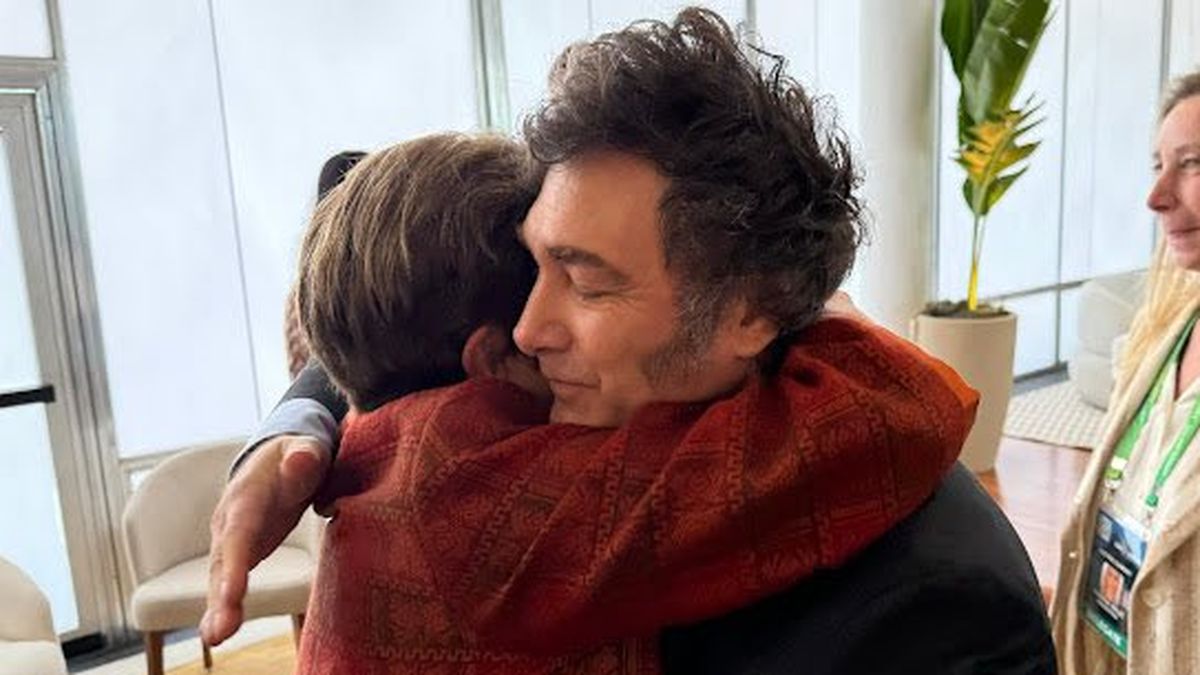In a context marked by economic challenges and the volatility of international markets, the Argentine delegation headed by Javier Milei He addresses Washington with the firm intention of redefining his financial policy. This trip represents a turning point for the economic team that seeks to stabilize the economy and recover the confidence of the markets with a disbursement of the organism.
However, the scenario looks: the progressive decrease of the international reserves of the Central Bank, an unstable exchange market and internal pressures that require structural solutions are the points that the background looks with distrust. Within this framework, the meeting with the IMF managing director, Kristalina Georgieva, is perceived as crucial to close an agreement that combines financial assistance and structural reforms.
The Argentine president, accompanied by a delegation of senior officials and economic advisors, heads the delegation that will move to the US capital. Among the members include cane figures of the cabinet, such as the Minister of Economy, Luis Caputothe Secretary General of the Presidency and other financial experts.
In addition to the meeting with the IMF, the agenda includes high -level meetings with leaders of the technological and business sector, which suggests an interest in diversifying the recovery strategy through international strategic alliances.
Possible encounter scenarios
Several analysts outlined several scenarios on the result of the meeting, each with important implications for the national economy:
-
Integral Global Agreement:
In the most optimistic scenario, Argentina could close an agreement that provides significant funds to strengthen international reserves and modernize the financial system. This agreement would include a stepped disbursement scheme and flexible conditions, allowing the government to implement reforms gradually and controlled, without generating a net increase in debt.
-
Initial protocol with monitoring commitments:
Another possibility is the signing of a preliminary agreement that activates a first phase of resources. Under this modality, a commitment would be established to continue negotiations and define in detail the total amount and disbursement calendar. This progressive approach would allow the country to adapt to the changing conditions of the market and adjust its economic policy according to emerging needs.
-
Renegotiation of conditions and restructuring of liabilities:
A third scenario contemplates the possibility of rethinking the previously established conditions, focusing on a debt restructuring. In this context, part of internal liabilities could become commitments to the IMF, relieving pressure on reserves without increasing public debt. This strategy, although more complex, could offer a medium -term solution for current financial challenges.
The concretion of an agreement with the IMF would have deep effects on the Argentine economic landscape. Internally, capital injection would allow stabilizing the exchange market, strengthening the Central Bank and improving liquidity in the coffers of the country. Likewise, a well -structured plan could facilitate the implementation of fiscal and administrative reforms that generate trust in both citizens and in the business sector.
In the international arena, a successful agreement would reaffirm Argentina’s commitment to fiscal discipline and transparency, fundamental elements to attract new investments and improve their relations with multilateral organizations. The possibility of establishing strategic alliances with technology companies and other global actors would also position the country as an emerging destination in the field of innovation and digital transformation.
Milei and Kristalina Georgieva.jfif
Several analysts have outlined several scenarios on the result of the meeting, each with important implications for the national economy.
However, despite the optimistic perspectives, there are several challenges that could influence the success of these negotiations. The volatility of the global economic environment, internal political tensions and the need to implement deep reforms represent risks that the government must carefully manage. The coordination between the different actors involved and the transparency in the management of resources will be key to ensure that the agreements reached in Washington are translated into real and sustainable improvements.
In addition, the strategy adopted must take into account the balance between the urgency of stabilizing the economy and the need to maintain tax sovereignty, avoiding measures that may generate misgivings between the different sectors of society or that imply negative long -term consequences.
The trip to Washington marks the beginning of a new stage in the economic history of Argentina. The meeting with Kristalina Georgieva and the parallel meetings with international leaders configure a high -voltage scenario and great expectations, where each decision will have significant repercussions. Whatever the outcome, the negotiations reflect a determined commitment by the government to face the current challenges and lay the foundations for a more stable and prosperous future.
The success of this mission will depend on the ability to balance the demands of the IMF with internal needs, implementing structural reforms that consolidate financial stability and open new growth opportunities. The international community and markets will be attentive to the results of these conversations, aware that Argentina’s economic future hangs on a thread at this decisive crossroads.
Source: Ambito




